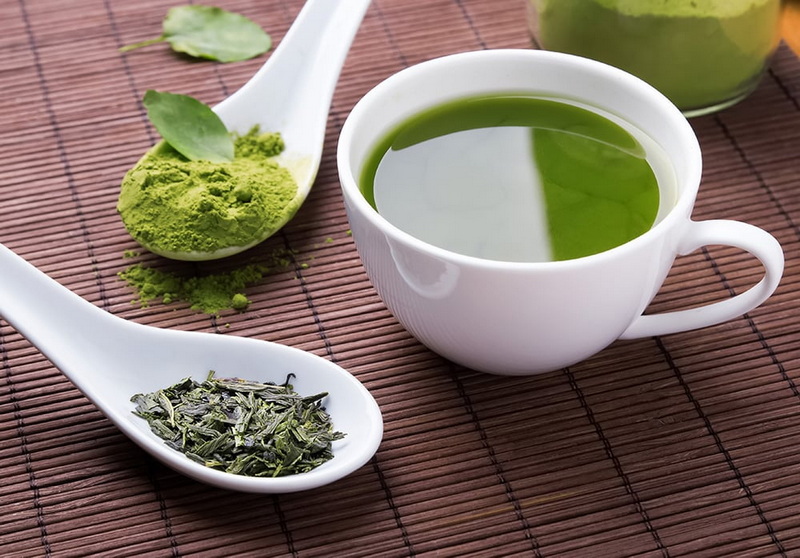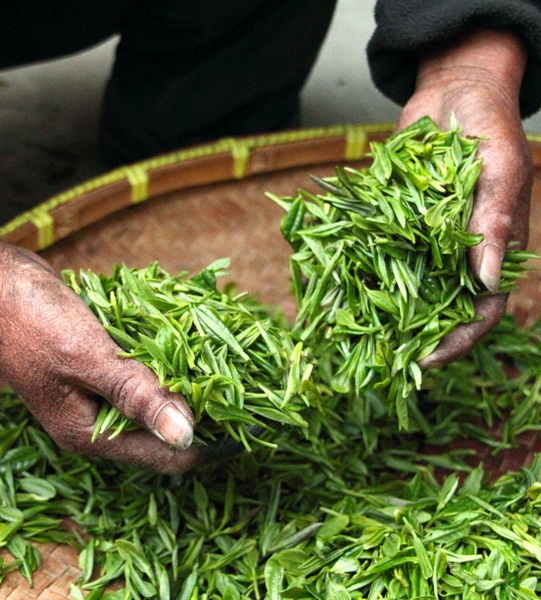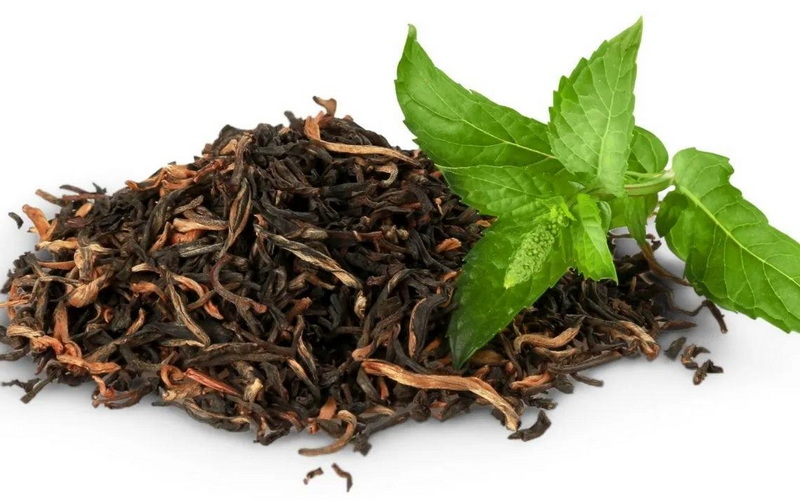Content Menu
● The Rise of Green Tea Extract
● Understanding Green Tea Extract
● Potential Health Risks
>> Liver Damage
>> Caffeine-Related Side Effects
>> Interactions with Medications
● Who Is at Risk?
● The Importance of Dosage and Quality
● Balancing Benefits and Risks
● Safe Consumption Practices
● Conclusion
● Frequently Asked Questions (FAQ)
>> 1. Is green tea extract the same as drinking green tea?
>> 2. How much green tea extract is safe to consume daily?
>> 3. Can green tea extract cause weight gain?
>> 4. Are there any alternatives to green tea extract for its health benefits?
>> 5. How long does it take for green tea extract to leave your system?
● Citations:
Green tea extract has gained popularity as a dietary supplement, touted for its potential health benefits. However, recent studies and reports have raised concerns about its safety, particularly when consumed in high doses or as concentrated extracts. This article will explore the potential risks associated with green tea extract and why it might be bad for you.

The Rise of Green Tea Extract
Green tea has been consumed for centuries and is generally considered safe when drunk in moderation. Its popularity has led to the development of concentrated green tea extracts, which are now widely available in supplement form. These extracts are often marketed for their antioxidant properties and potential benefits for weight loss, cancer prevention, and cardiovascular health.
Understanding Green Tea Extract
Green tea extract is derived from the leaves of the Camellia sinensis plant. It contains a high concentration of polyphenols, particularly catechins, which are believed to be responsible for many of its health benefits. The most abundant and potent catechin in green tea is epigallocatechin-3-gallate (EGCG).
Potential Health Risks
Despite its purported benefits, green tea extract has been associated with several health risks, particularly when consumed in high doses or as concentrated supplements.
Liver Damage
One of the most serious concerns associated with green tea extract is its potential to cause liver damage[1][4]. Several cases of hepatotoxicity (liver toxicity) have been reported in individuals consuming green tea extract supplements. The severity of liver damage can range from mild elevations in liver enzymes to acute liver failure requiring transplantation.
The exact mechanism by which green tea extract causes liver damage is not fully understood. However, it is believed that the high concentration of catechins, particularly EGCG, may be responsible for the hepatotoxic effects[1]. These compounds can potentially disrupt mitochondrial function and induce oxidative stress in liver cells.
Caffeine-Related Side Effects
Green tea naturally contains caffeine, and concentrated extracts may contain even higher levels. While caffeine can provide benefits such as increased alertness and improved cognitive function, excessive intake can lead to various side effects[5][6]. These may include:
- Anxiety
- Insomnia
- Tremors
- Irritability
- Headaches
- Increased heart rate and blood pressure
Interactions with Medications
Green tea extract can interact with various medications, potentially altering their effectiveness or increasing the risk of side effects[6]. Some notable interactions include:
- Anticoagulants: Green tea may decrease the effectiveness of blood-thinning medications like warfarin.
- Beta-blockers: The extract can reduce the absorption of certain beta-blockers, such as nadolol, used to treat high blood pressure and heart conditions.
- Iron absorption: The tannins in green tea can interfere with iron absorption, which may be problematic for individuals with iron deficiency anemia.

Who Is at Risk?
While green tea extract can potentially affect anyone, certain groups may be at higher risk of experiencing adverse effects:
1. Individuals with liver disease: Those with pre-existing liver conditions may be more susceptible to green tea extract-induced liver damage[5].
2. People sensitive to caffeine: Individuals who are sensitive to caffeine may experience more severe side effects from green tea extract[6].
3. Pregnant and breastfeeding women: Due to the caffeine content and potential risks, pregnant and breastfeeding women are advised to avoid green tea extract supplements[10].
4. People taking certain medications: As mentioned earlier, those taking anticoagulants, beta-blockers, or other medications that may interact with green tea extract should exercise caution[6].
The Importance of Dosage and Quality
The risks associated with green tea extract are often dose-dependent, meaning that higher doses are more likely to cause adverse effects[1]. Many of the reported cases of liver damage involved high doses of green tea extract or prolonged use of supplements.
It's also important to note that dietary supplements, including green tea extract, are not strictly regulated by the FDA. This lack of regulation can lead to variability in product quality and potency[8].
Balancing Benefits and Risks
While this article focuses on the potential risks of green tea extract, it's important to acknowledge that green tea, when consumed as a beverage in moderation, can offer various health benefits. These may include improved cardiovascular health, enhanced cognitive function, and potential cancer-fighting properties.
The key is to approach green tea extract supplements with caution and to prioritize whole green tea consumption over concentrated extracts whenever possible.
Safe Consumption Practices
If you choose to use green tea extract supplements, consider the following guidelines:
1. Consult a healthcare professional: Before starting any new supplement regimen, consult with your doctor, especially if you have pre-existing health conditions or are taking medications.
2. Start with low doses: Begin with the lowest recommended dose and monitor for any adverse effects.
3. Don't exceed recommended dosages: Stick to the recommended dosage on the product label or as advised by your healthcare provider.
4. Choose reputable brands: Select supplements from well-known, reputable manufacturers that follow good manufacturing practices.
5. Be aware of symptoms: If you experience any signs of liver problems, such as abdominal pain, dark urine, or jaundice, discontinue use immediately and seek medical attention[8].
Conclusion
While green tea extract may offer potential health benefits, it's crucial to be aware of the associated risks, particularly concerning liver health. The concentrated nature of these supplements can lead to the consumption of catechins and caffeine in amounts far exceeding what would typically be obtained from drinking green tea.
For most people, drinking green tea in moderation is likely safe and may provide health benefits without the risks associated with concentrated extracts. If you choose to use green tea extract supplements, do so under the guidance of a healthcare professional and be vigilant for any signs of adverse effects.
Remember, when it comes to supplements, more is not always better. A balanced approach to nutrition, focusing on whole foods and beverages, is often the safest and most effective way to support overall health.

Frequently Asked Questions (FAQ)
1. Is green tea extract the same as drinking green tea?
No, green tea extract is not the same as drinking green tea. Green tea extract is a concentrated form of the compounds found in green tea, often containing much higher levels of catechins and caffeine than a typical cup of green tea. While drinking green tea is generally considered safe for most people, the concentrated nature of green tea extract can potentially lead to adverse effects, especially when consumed in high doses[1][2].
2. How much green tea extract is safe to consume daily?
The safe daily dose of green tea extract can vary depending on the individual and the specific product. Most studies have used doses ranging from 300-800 mg of green tea extract per day. However, it's crucial to follow the recommended dosage on the product label or consult with a healthcare professional. Keep in mind that the safety of long-term use of high-dose green tea extract supplements has not been well-established[6][8].
3. Can green tea extract cause weight gain?
Green tea extract is often marketed for its potential weight loss benefits, and it's unlikely to cause weight gain directly. However, if green tea extract supplements are used as a replacement for a healthy diet and exercise, they may not lead to the desired weight loss results. Additionally, some people may experience increased appetite as a side effect of the caffeine in green tea extract, which could potentially lead to increased calorie intake[5][7].
4. Are there any alternatives to green tea extract for its health benefits?
Yes, there are several alternatives that can provide similar health benefits to green tea extract:
- Drinking whole green tea
- Consuming other antioxidant-rich foods like berries, dark leafy greens, and other teas
- Engaging in regular physical activity
- Maintaining a balanced, nutrient-rich diet
- Getting adequate sleep and managing stress
These lifestyle factors can contribute to many of the health benefits associated with green tea without the potential risks of concentrated extracts[7][10].
5. How long does it take for green tea extract to leave your system?
The time it takes for green tea extract to leave your system can vary depending on several factors, including the dose consumed, individual metabolism, and overall health. The caffeine in green tea extract typically has a half-life of about 5 hours, meaning it takes about 5 hours for the body to eliminate half of the caffeine consumed. However, some of the other compounds in green tea extract, such as EGCG, may have longer half-lives. If you're concerned about green tea extract in your system, it's best to consult with a healthcare professional for personalized advice[6][9].
Citations:
[1] https://pmc.ncbi.nlm.nih.gov/articles/PMC3746392/
[2] https://www.bannerhealth.com/newsroom/press-releases/green-tea-extract
[3] https://pubmed.ncbi.nlm.nih.gov/21538851/
[4] https://www.rutgers.edu/news/green-tea-extract-may-harm-liver-people-certain-genetic-variations
[5] https://www.urmc.rochester.edu/encyclopedia/content?contenttypeid=19&contentid=GreenTeaExtract
[6] https://www.webmd.com/vitamins/ai/ingredientmono-960/green-tea
[7] https://www.medicalnewstoday.com/articles/269538
[8] https://www.nccih.nih.gov/health/green-tea
[9] https://www.vumc.org/poison-control/toxicology-question-week/march-12-2021-what-are-adverse-effects-green-tea-extract
[10] https://www.mountsinai.org/health-library/herb/green-tea






























